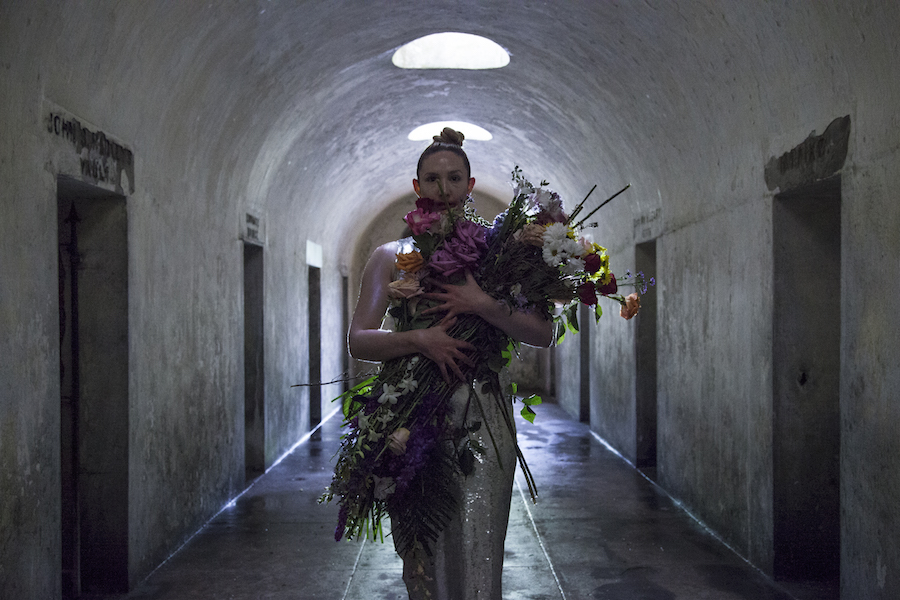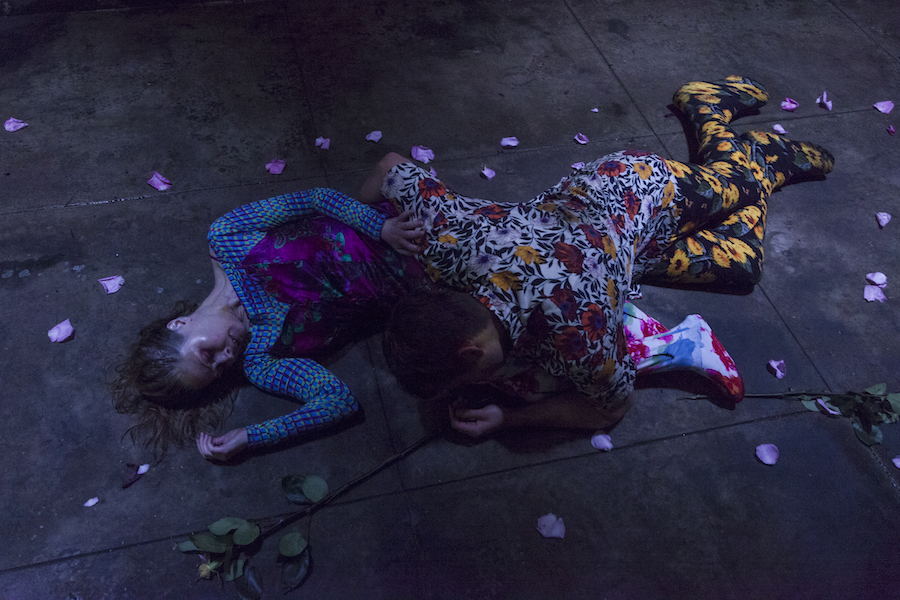Stories featuring murder, suicide, necrophilia, and cannibalism have inspired both staples of the operatic repertory and contemporary works: a grisly legacy continued by the gifted young American composer and librettist David Hertzberg. His engrossing chamber opera The Rose Elf is based on a grim fairy tale by Hans Christian Andersen, about an evil brother who murders his sister’s lover and buries the decapitated body, the horrors witnessed by a tiny elf sheltering in a rose. The sister unearths her beloved’s head and plants it in a flower pot.
Where better to stage such a bone-chilling work than a cemetery? Producing opera in ever more unusual venues has become commonplace in recent years, but there was certainly a particular resonance between location and story when Hertzberg’s one-hour opera received its world premiere in the Catacombs of the Green-Wood Cemetery in Brooklyn.
The Rose Elf (Samantha Hankey)
Photograph: Matthew Placek

The production of The Rose Elf, directed by R.B. Schlather, inaugurated an imaginative series called “The Angel’s Share” curated by the classical-music impresario Andrew Ousley, who last season offered a series of concerts in a crypt in Harlem. After mingling over whiskey, beer, and snacks at the reception center, listeners at the Sunday night performance were ferried to the catacombs on trolleys, the cemetery misty in a light rain. A chamber ensemble stationed at the far end of the narrow passageway of the catacombs played a slow beat as the audience, holding glow-sticks, filed in and sat on chairs against the walls, looking in the gloom like unusually subdued ravers waiting for a DJ to arrive.
The elf is described in the fairy tale as “so tiny that no mortal eye could see him.” But this delicate, sensitive creature who dances on the wings of butterflies is also determined: he avenges the lovers by orchestrating the murder of the evil brother. The luminous voice and commanding physical presence of the mezzo Samantha Hankey – tall and statuesque in a silvery dress, her hands and part of her face stained red – embodied the title character’s hidden strength instead of Tinkerbell clichés. Portraying the Girl (Luna) and her Beloved (Horus), the soprano Alisa Jordheim and the tenor Kyle Bielfield, clad in sunflower print leggings, moved sensually throughout the claustrophobic space as they enacted their doomed romance. There were erotically macabre undertones as the murderous brother draped himself over his victim on the floor in a pile of tangled limbs and ugly floral prints.
The Girl (Alisa Jordheim) and the Lover (Kyle Bielfield)
Photograph: Matthew Placek

Teddy Poll deftly conducted a kaleidoscopic score whose luxuriance contrasted with the spartan surroundings. Flickers of arpeggios and soft filigree alternated with luminous Messiaen-like piano chords and darts of percussion color. A whispered, mournful cello line morphed into voluptuous outbursts. The expressive vocal palette ranged from the gruff declamations of the brother, portrayed with sinister conviction by the bass-baritone Andrew Bogard, to the soaring vocal lines that concluded the work. The music stopped as the brother dragged his victim’s body along the floor, his contorted movements riveting in the silent, close quarters.
While recent operas by George Benjamin and Charles Wuorinen have seemed too chilly and cerebral for their gruesome and tragic subject matters, Hertzberg has turned a morbid fairy tale about a shattered love affair into a suitably full-blooded and passionate opera. The catacombs were cold, but the music and singing certainly generated plenty of heat.
Vivien Schweitzer is a New York based writer and pianist. She was a freelance music critic for The New York Times between 2006-2016, and has just written A Mad Love: An Introduction to Opera, to be published by Basic Books in September 2018.